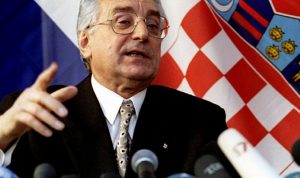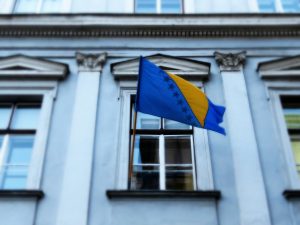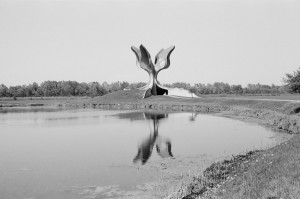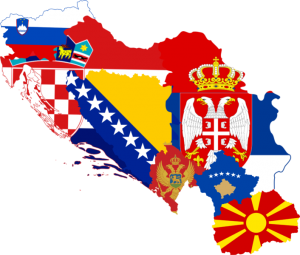A Yugoslav Communist Major Franjo Tuđman (left) with his Croatian compatriot Communist Captain Joža Horvat (right) as...
Tudjman
That a Serb Question in Yugoslavia was really acute problem became clear on April 24th, 1987 [...]
A new 1991 year started with a fear of the escalation of the political conflicts into a...
The Croat ultranationalists (i.e., the followers of the Ustashi movement) called in the 1990s for the full...
Stories of resistance to Croatia’s fascist Ustasa can help counter revisionists’ attempts to rehabilitate the World War...
From the beginning, it should have been clear that the Clinton administration's decision to aid the radical...
The radical and revisionist messages of far-right Croatian politicians and historians find a sympathetic audience among many...
The core of the puzzle became that constitutionally six federal republics and two autonomous provinces were seen...
The reason Račak is so important to the construction of the mythological narrative in which recent Kosovo...
Fake News Used to Justify All Out War: The Bosnian Serb “Death Camp” Fabrication. Pretext for R2P...















